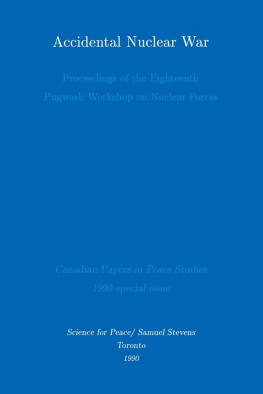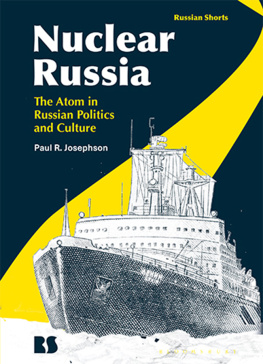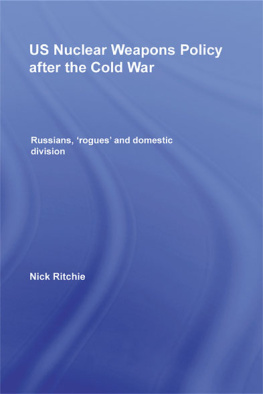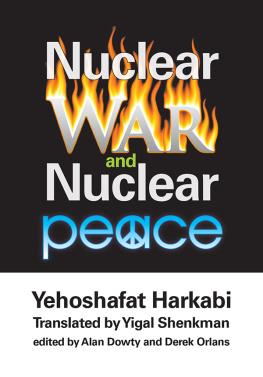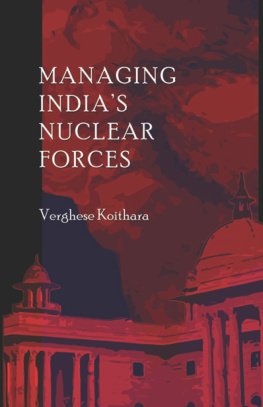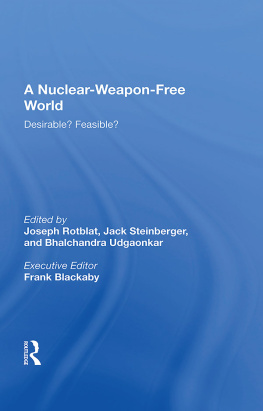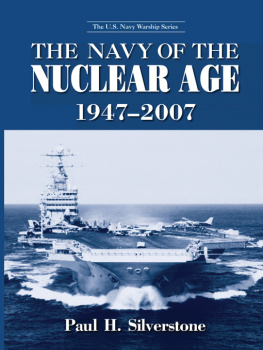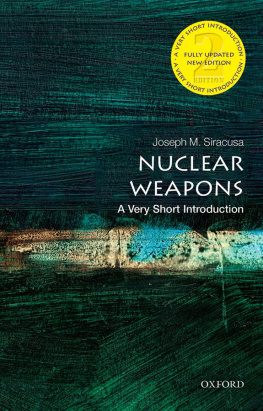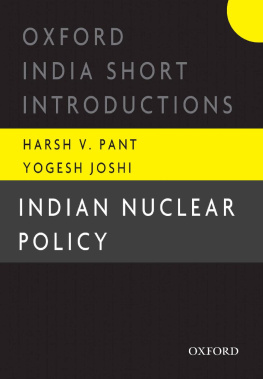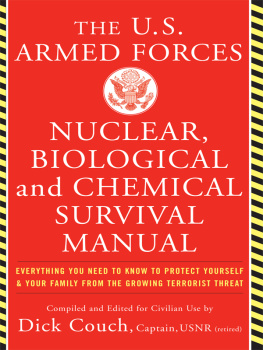Accidental Nuclear War
Thinkers Lodge, Pugwash, Nova Scotia, which welcomed the first Pugwash Conference in 1957, and most recently welcomed participants to the July 1989 Workshop.
Photo, kindly lent by Anne Eaton, of drawing by an unknown artist.
Accidental Nuclear War
Proceedings of the Eighteenth
Pugwash Workshop on Nuclear Forces
Editors:
Derek Paul, Michael D. Intriligator and Paul Smoker
Canadian Papers in Peace Studies
1990 special issue
Science for Peace/ Samuel Stevens
Toronto
1990
Copyright @ 1990 by Pugwash Conferences on Science and World Affairs
All Rights Reserved
Science for Peace
University College
University of Toronto
Toronto, Canada M5S 1A1
Samuel Stevens &
Company University of Toronto Press
5201 Dufferin Street
Downsview, Ontario
Canada M3H 5T6
Printed in Canada
Canadian Cataloguing in Publication Data
Pugwash Workshop on Nuclear Forces (18th : 1989 : Pugwash, N.S.)
Accidental nuclear war
(Canadian papers in peace studies; 1990 special issue)
Includes bibliographical references.
ISBN 0-88866-634-9
Nuclear crisis control Congresses. 2. Nuclear crisis control Psychological aspects Congresses. 3. Nuclear arms control Congresses. 4. Nuclear warfare Congresses. I. Paul, Derek. II. Intriligator, Michael D. III. Smoker, Paul. IV. Science for Peace (Association). V. Title. VI. Series.
JX1974.8.P8 1989 355.0217 C90-093876-5
Contents
Preface
This book is based on the July 1989 Pugwash Workshop on Accidental Nuclear War, which took place in Pugwash, Nova Scotia, in the setting of the first international Pugwash conference (1957). Science for Peace gratefully acknowledges the financial support of the the Pugwash Park Commission, without which this book would not have been produced.
Just as Cyrus and Anne Eaton hosted that first conference thirty two years ago, now Anne Eaton, with Gian Brenciaglia and his wife Sue, graciously hosted the 1989 Workshop.
This special issue of the Canadian Papers in Peace Studies departs from our past practice of publishing monographs by a single author essays, as it were. The opportunity to bring out a new book on Accidental Nuclear War was irresistible. Though this book is the Proceedings of the July 1989 Pugwash Workshop, it is both more and less than that. The nature of the introductory chapters is such that we try to provide some background (chapter II) as well as to summarize the substantive points of the Workshop (chapter III). We go beyond the actual proceedings in that we draw, in both these chapters, on additional experience, knowledge, and insights of four of our authors. At the same time the discussion as such is not reproduced here in fact it would be contrary to Pugwash tradition to ascribe particular points of informal discussion to the people who made them.
The paper by Intriligator and Brito is a revised version of an earlier paper presented at the December 1986 Pugwash Workshop on Accidental Nuclear War, held in Geneva. Though their paper was not available in its present form at the July 1989 Workshop, the recommendations it puts forward were presented and discussed, and many participants were familiar with the 1986 version of the paper. George and Gottfried were the rapporteurs of the July 1989 Workshop, and their original report has appeared in the Pugwash Newsletter vol. 27, number 1, July 1989. Their present paper is a slightly revised version of the Newsletter report.
The rest of this book consists of written papers submitted to the Workshop and discussed at the Workshop, plus one verbal presentation that was discussed and subsequently written up. Two papers submitted and not presented or discussed (because the authors were not present) have been omitted; but I think that the thrust of these papers, which were general overviews, is not lost in this book.
I express my thanks to Peigi Rockwell, who assisted without flagging in the preparation of the text; and to Geoff Rockwell, who advised and assisted in various essential linkages with the University of Toronto Computing services. Ruth Hayward generously volunteered to proofread the final text, for which we are most grateful.
** ** **
Books submitted to the Publications Committee of Science for Peace for this series are each considered on their merits, having due regard to the purposes of Science for Peace. In addition, the Committee seeks authors for books on topics that are thought to be of special importance at the time. The Committee has a general policy of submitting typescripts to independent referees for comment, but is not rigidly bound by this policy, and also seeks to avoid long delays when material of timely relevance is submitted.
Derek Paul, series editor
Physics Department
University of Toronto
Toronto, M5S 1A7
Foreword
This book constitutes the Proceedings of a meeting held in Pugwash, Nova Scotia, 18-20 July 1989, which was the eighteenth in a series of Workshops on Nuclear Forces held in the framework of the Pugwash Conferences on Science and World Affairs. (For a brief description of Pugwash Conferences see page xiv). This particular series of Workshops was initiated in January 1980, that is, immediately after the NATO double-track decision of December 1979 that in the short run led to the deployment in Europe of new US nuclear-armed missiles ground-launched cruise missiles and medium-range ballistic missiles (Pershing II) but that was also instrumental in setting into motion the process that led to the total elimination of all US and Soviet ground-based missiles having ranges from 500 to 5500 km (Intermediate-Range Nuclear Forces Treaty, December 1987). The first Pugwash Workshop of this series also met in the immediate aftermath of the Soviet military intervention in Afghanistan, the termination of which is another positive, recent development. All these Workshops (except, precisely, the eighteenth) were held in Geneva, Switzerland, and their main purpose was to facilitate progress toward nuclear disarmament, acting to some extent as unofficial backgrounds and sounding boards for the official negotiations whose main visible threads were the Soviet-American talks (START) in Geneva. Hence the main topics, discussed in these Workshops by knowledgeable and influential experts, had to do with the composition of nuclear (and conventional) forces, nuclear (and conventional) strategy, the role, prospects and possible pitfalls of trying to develop strategic (possibly space-based) defences, and the foreseeable (and desirable) prospects of arms control and disarmament. The danger that nuclear war might somehow erupt and cause catastrophic destruction was, of course, always present in our minds, serving as a main motivation for dealing with these topics. We hoped that our discussions, involving experts from all sides (Americans, Soviets, Europeans from the NATO, WTO and neutral countries, and also some individuals from other parts of the world) would contribute to avert that danger.
As the international atmosphere improved, concrete progress in arms control and disarmament appeared imminent, while the prospect of a deliberate armed conflict engaging the main powers appeared instead more and more remote. It then appeared appropriate to focus on another concern, namely, that a nuclear war or any use of nuclear weapons might occur in an accidental, or unintended manner. Hence this question was identified as the theme for the fourteenth Pugwash Workshop of our series (Geneva, 13-14 December, 1986) and then again for the eighteenth Workshop (Pugwash, Nova Scotia, 18-20 July 1989). In both cases much attention was devoted to the psychological components of this question, involving the behaviour of individuals under stress and the screening of people dealing with nuclear matters; in addition, of course, to the command and control of nuclear weapons, the strategic postures, the nuclear arsenals, the channels of communication among decision-makers in nuclear-weapon countries all factors relevant to the danger of accidental nuclear war. Accordingly, the participants in these meetings comprised individuals with a broad spectrum of competence, ranging from experts in psychology and psychiatry to experts on the command and control of nuclear weapons. Equally broad were their national-political-ideological backgrounds (see page 163 for the list of participants in the eighteenth Workshop). They all attended, following in the tradition of all meetings organized in the framework of the Pugwash Conferences on Science and World Affairs, in their personal capacities, and not as official representatives of government or of any institution. All the papers printed in this book were written on the same basis of personal knowledge and opinion.


